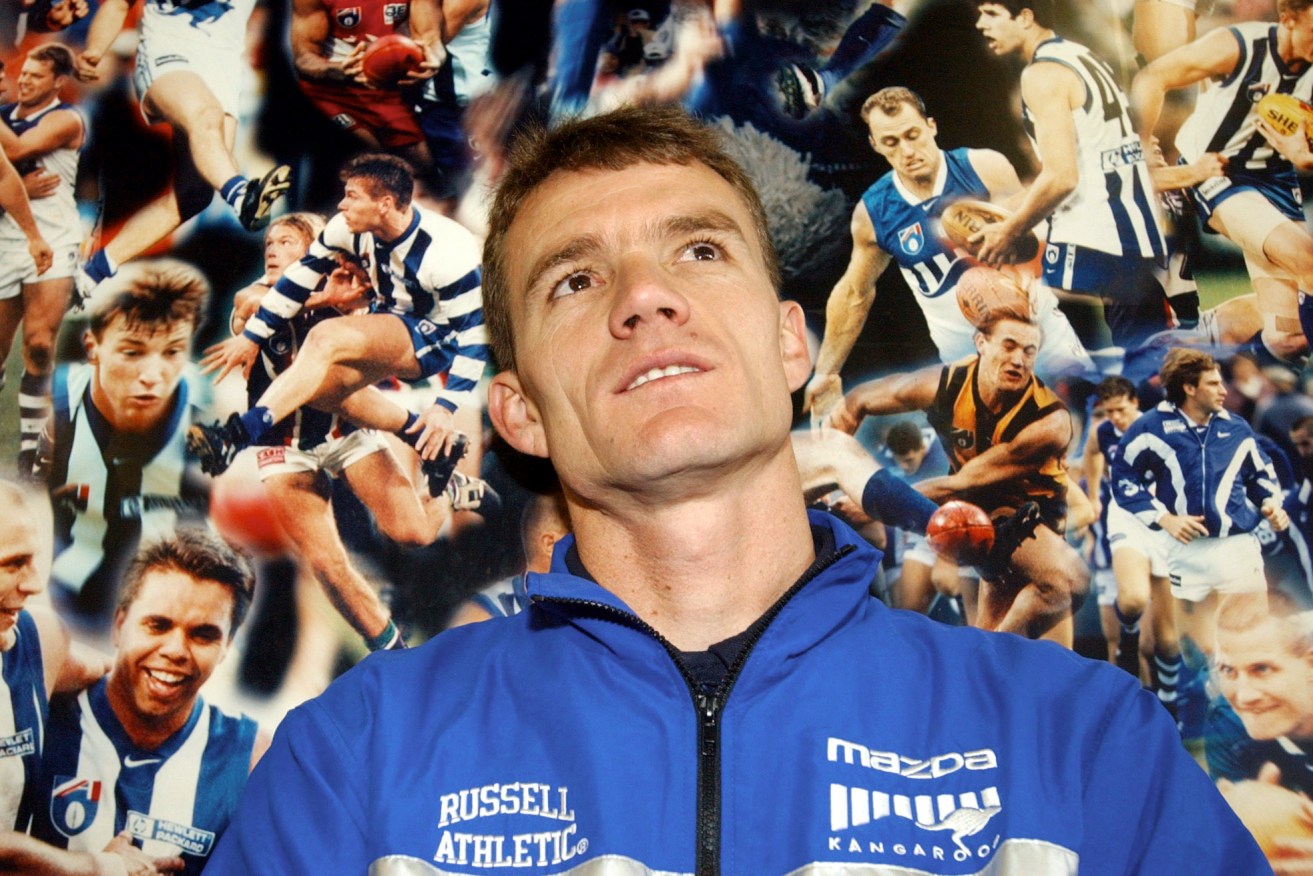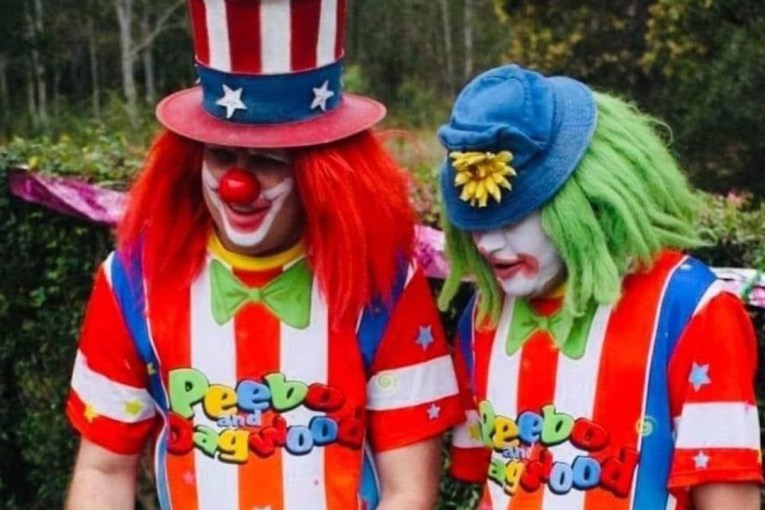It’s sad, for sure, but don’t pity those entrapped by how good life used to be
The sad sight of fallen North Melbourne great Dean Laidley is a cautionary tale, writes Michael Blucher


The sad fall of former North Melbourne AFL player and coach Dean Laidley is a cautionary tale. (Photo: AAP Image/Julian Smith)
The leaked and in other ways confronting images of AFL heavyweight Dean Laidley inside a Melbourne watch house earlier this week was yet another reminder of the challenges many elite athletes and coaches face once they’re shown the dressing shed door.
Casting aside for a moment the former North Melbourne great’s personal circumstances, transition into the “real world” is widely acknowledged as a “real thing”.
Loss of identity, the absence of purpose, the removal of structure, the sense of isolation, and for many, a cataclismic reduction in income are just some of the challenges faced by institutionalised athletes and coaches as they step – or are pushed – off the elite sporting stage.
Having worked in and around professional sport for more than two decades, I’ve witnessed from close range the grieving and inner turmoil. I’ve sat in silence in the company of once formidable, apparently indestructible athletes, while they’ve stared at the wall in front of them, tears welling in their eyes, not knowing what to do, or where to go, or what the future might hold.
Just months into their retirement, they fear their life will never be as good as it once was, when they were cheered and lauded for doing what came naturally, what they loved, and what ultimately afforded many a very comfortable if not lucrative lifestyle.
I saw some work themselves up into a state that bordered on paralysis. They wouldn’t want to get out of bed. They’d shut themselves off from their friends, they’d start eating and drinking the wrong things, in the wrong amounts, and the downward spiral continued until they hit rock bottom.
Yes sir, it’s real. Not for everybody of course, but if you put it to a vote, the Self Pity Party would be elected in a landslide.
A very small part of me feels for them, because I know just how common place the challenges are, not just in Australia, but in sport the world over.
But there’s a much bigger part of me that wants to grab a toy violin and start “fiddling” away to the tune of “Cry me a river”.
Like death, like taxes, like off-field incidents in rugby league, transition is an escapable reality of life. We are all called upon to transition at some stage – for many it’s a regular occurrence.
Take for example, the carefree, oft-inebriated uni student who graduates into the workforce, and instantly has to take on the unfamiliar responsibility of meeting budgets and looking respectable. That’s a transition. Or the 45-year-old sales manager, with a wife, three kids and a mortgage, who’s unexpectedly been made redundant after 28 years working in the same industry.
Is it easy for him? Or the lifelong policeman retiring from the force?
At a different stage of life, on a different stage, the beautiful young catwalk model with the once-flawless skin and impeccable curves, now approaching “middle” age, no longer turning heads or hoisting clothes in the same beguiling fashion. What’s going on in her head? Do you reckon she needs to reset?
I’ve deliberately left the most obvious and compelling example to last – the returning serviceman who’s spent 10 years in the Middle East fighting for his country, and now has to assimilate back into civilian life, pretending he hasn’t seen or been involved in all the things he’s seen and been involved in.
He used to be strong and agile. He used to wear a uniform, and fight alongside his mates, who in life and death situations, relied on him in the same way he relied on them. Now he’s just trying to forget. He’s trying to sleep at night. And stop drinking.
But hey, what about those poor retired athletes, who are no longer feeling the same sense of exaltation, now that their sporting career is over? Sure they might have earned enough money to buy a nice house, but what are they going to do now? How are they ever going to replace what they once had? Cry me that river.
Of course, I’m cherry-picking here – not every professional sporting career plays out as a fairy tale. There are many horror stories, involving untold amounts of hard work and sacrifice, without any reward. We just don’t hear about them.
But the truth is most elite athletes are by necessity, self-absorbed. That’s not a criticism, its an observation. At some level, they need to be to compete and perform at the level they do.
However, because of the insulated world in which they live, those on handsome contracts, playing team sports, have little appreciation of what is going on around them, the day to day struggles of families with bills on the fridge they can’t afford to pay. Their sources of pressure are vastly different.
I’m not for a second trivialising what professional athletes do or how hard they work, or the physical pain they often endure. Nor am I begrudging them the bloated wages they earn for a comparatively short period of their life.
But do I feel sad for them because it doesn’t last forever?
No, I don’t. I say “welcome to the real world”. The world of inevitable and constant transition. Of resets and reinvention, of picking up the pieces and going again.
For many, the inevitable truth is that nothing will ever replace the feeling of euphoria elite sport serves up so consistently. The relief when the siren sounds, the dressing room vibe, the sense of camaraderie, even the gut-wrenching discomfort so commonly experienced in the build-up to the contest.
But wasn’t it better to have feasted for a short time, or even nibbled at the scrumptious pickings for a year or two, than never sat at the table? Besides, whose choice was it to play or compete in the first place? Did anybody force you?
If COVID-19 has done anything for the world of professional sport, it has given athletes a taste of what life is like without the contest. Take the game away, and what’s left? And what’s next?
At one point they will have to transition – that much is certain, but as any athlete who has successfully navigated the treacherous channel between sport and “real life” will tell you, it’s much better to be transitioning “to” something, than transitioning “from” something.
In that way, the future becomes the focus, not the past. Many have moved on successfully, if not immediately, than eventually, using the attributes and disciplines that served them so well while they were competing. For some, it’s been entry into the corporate world, for others, it’s running a small business, or working in the media – there’s plenty of evidence to suggest the dark days don’t last forever.
Meanwhile, in the spirit of benevolence and generosity, I’ll continue to do my best to sympathise with disoriented and disillusioned athletes and coaches, who feel entrapped by how good life used to be.
It’s not fun to see anybody struggle, let alone those who have made their mark.
But to be honest, I find my emotional support and energy drifting towards the guys who’ve been in the trenches.












